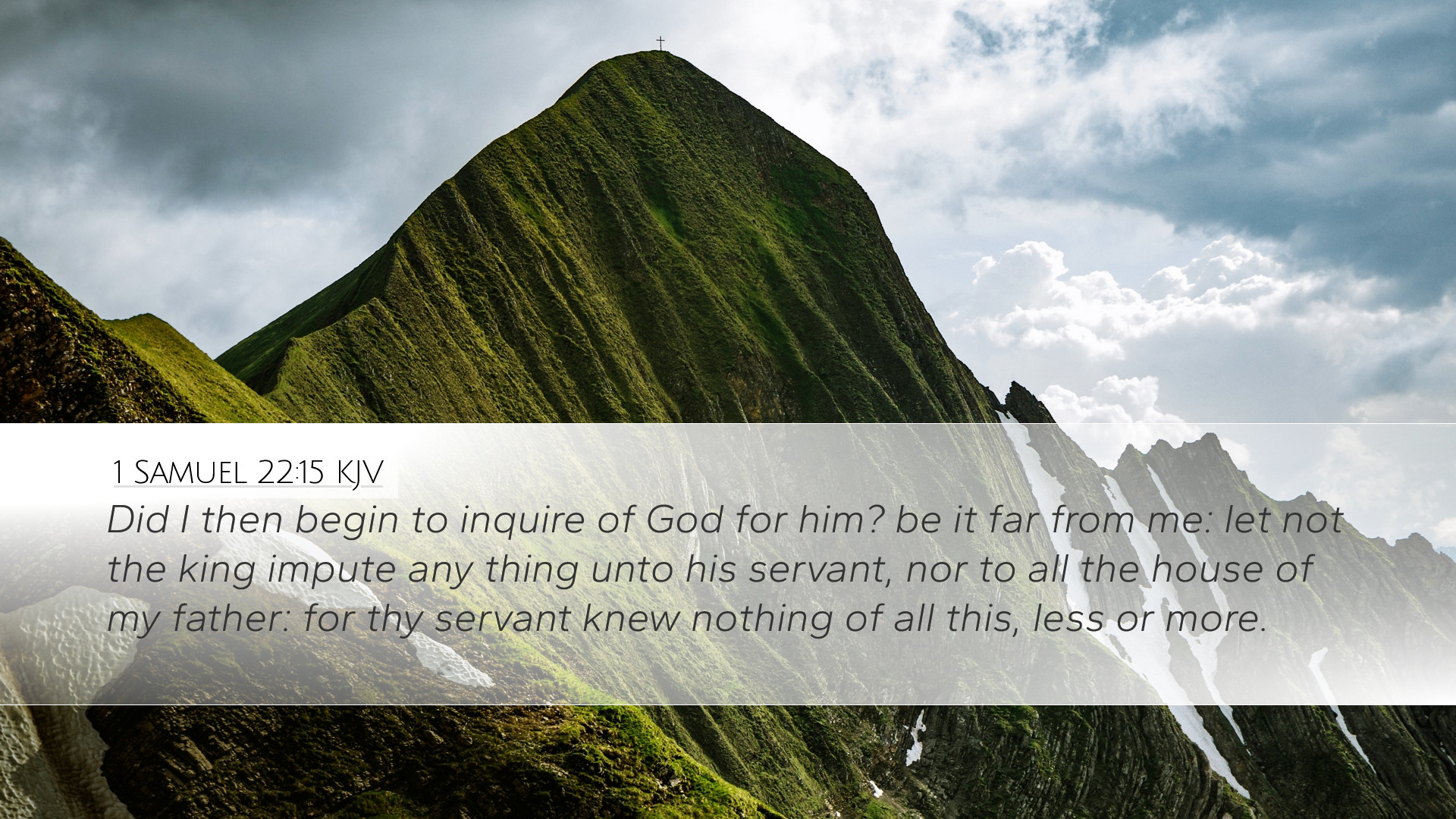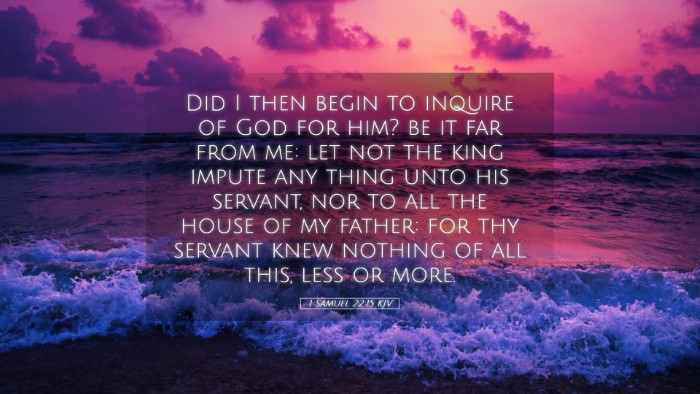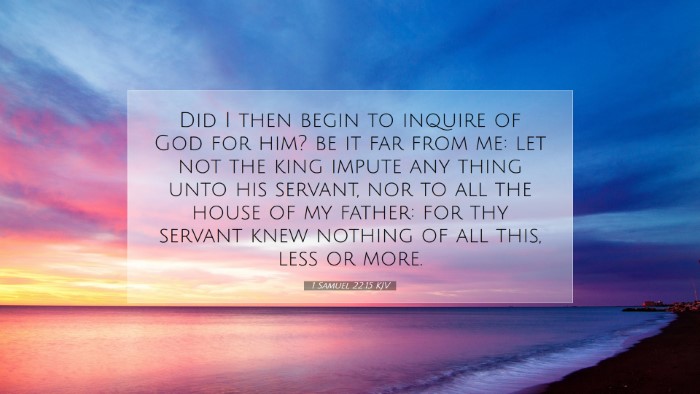Commentary on 1 Samuel 22:15
Verse: "Did I then begin to inquire of God for him? Be it far from me: for I will not lay my hand on the Lord’s anointed." (1 Samuel 22:15)
Contextual Overview
This verse occurs in the narrative during the time when David was fleeing from King Saul, who was increasingly threatened by David's growing popularity and God's anointing upon him. In this particular passage, Abiathar, the son of Ahimelech, has fled to David after Saul ordered the priests to be killed for aiding David. Abiathar brings news of Saul's wrath and questions David's intentions regarding the Lord's anointed king.
Theological Insights
This verse opens a significant theological dialogue regarding the anointed leaders of God and the respect due to their position. David's refusal to lay hands on Saul reveals several crucial themes:
- Respect for God's Anointed: David demonstrates a profound understanding of the sacredness of the office of king, while not fully grasping Saul's moral failings.
- Divine Sovereignty: The text showcases David's firm belief that it is God's prerogative to remove Saul, and he refrains from taking matters into his own hands.
- Morality vs. Authority: David's conscience and understanding of authority depict a tension between divine appointment and human failure, an interplay that raises questions about legitimacy in leadership.
Commentary Insights
Matthew Henry
Matthew Henry emphasizes the sanctity of anointing and asserts that even a flawed king deserves respect for his office. He writes extensively on the moral implications of usurping authority that God has appointed, stating that David’s moral character shines through in his refusal to harm Saul. Henry interprets this as a lesson in our responses to authority and the need to honor those whom God has placed over us, despite their failings.
Albert Barnes
Albert Barnes notes that David's statement serves as a rejection of any violent response against Saul, pointing to a holistic view of divine justice. He adds that David’s heart was aligned with God’s purposes, which compelled him to trust in God’s timing and wisdom. Barnes elaborates on the significance of faith in adversity, positing that true alignment with God's will often requires patience and discernment rather than immediate retribution.
Adam Clarke
Adam Clarke provides a more socio-political analysis, recognizing that this refusal reflects David's understanding of the implications of rebellion against God’s order. Clarke remarks on the fact that David knew Saul’s anointing had genuine divine backing, and any act against Saul would not only undermine Saul's authority but could also incite divine wrath. Clarke posits that this narrative highlights the dangers of conflict between God’s chosen and human ambitions.
Application for Pastors and Theologians
This verse presents a rich framework for pastors and theologians to explore the dynamics of power and submission within spiritual leadership. It poses essential questions regarding how leaders should conduct themselves in moments of tension with authority:
- How do we uphold God’s anointed amidst personal grievances?
- What does it mean to wait on God’s timing in situations of conflict?
- In what ways can we as church leaders navigate the complexities of flawed leadership while adhering to biblical integrity?
Conclusion
1 Samuel 22:15 serves as a profound testament to David's character and his understanding of divine providence. The insights drawn from public domain commentaries collectively remind us of the sanctity of God-ordained leadership and the moral responsibility that accompanies it. As students of scripture, we are called to reflect on our attitudes towards authority and the challenges of maintaining integrity in a divided context.


